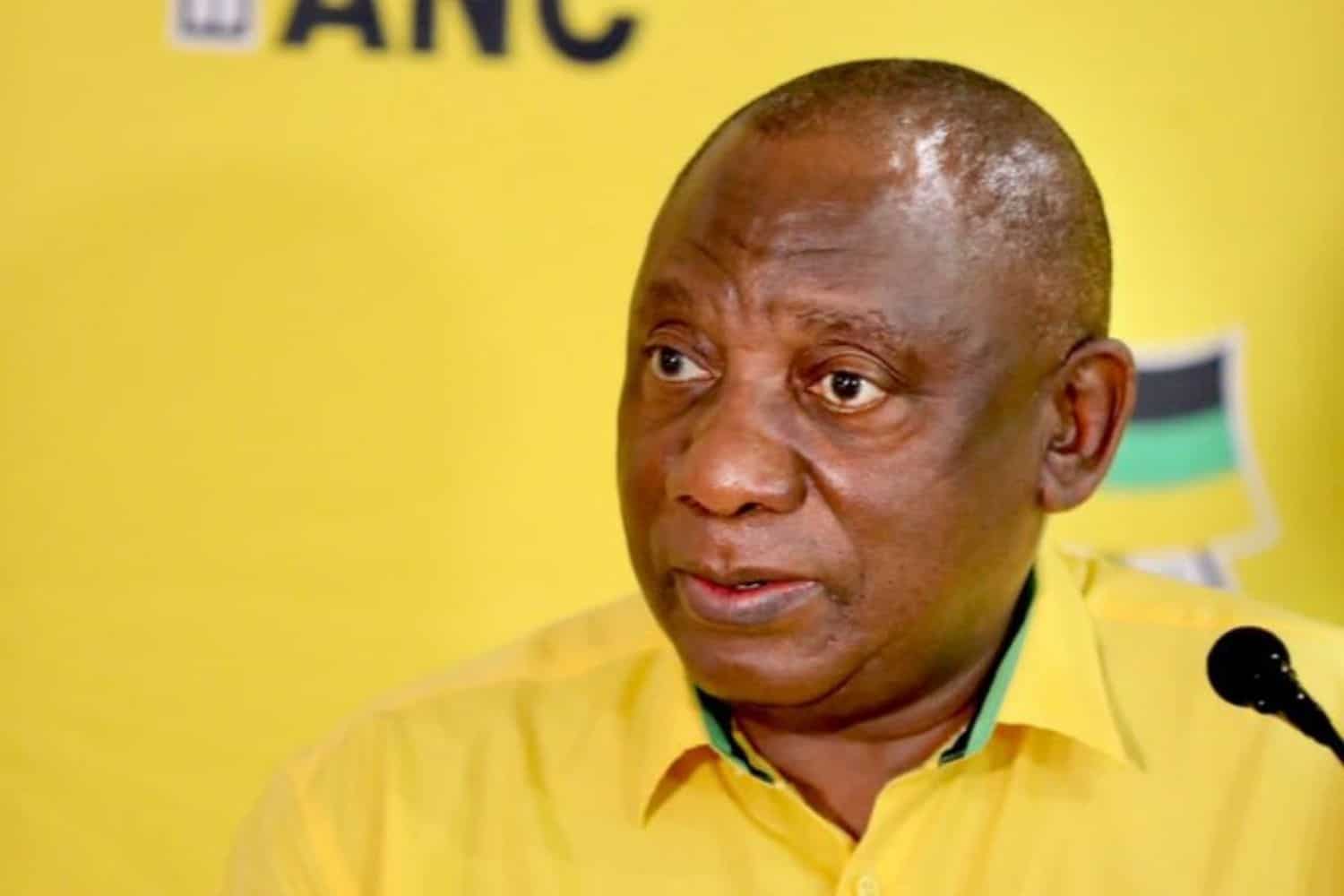South Africa’s government is at war. With itself.

President Cyril Ramaphosa on the podium from Parktown giving a preview of the ANC's LGE Manifesto and the ANC's election candidates | Picture: Twitter
South Africa’s government is at war. With itself.
It’s a military achievement of sorts. Feuding factions of the ANC have sabotaged SA’s infrastructure more effectively in the past few years than its rather hopeless armed wing managed in four decades of the struggle.
Escalating acts of sabotage at Eskom last week brought us to the brink of stage 6 load shedding. That’s 10 hours without electricity daily.
This occurred when a pylon was deliberately toppled in an attempt to bring down two coal feeding lines to the Lethabo power station.
Said Eskom CEO André de Ruyter: “There are individuals out there who seek to damage the economy by causing very significant and substantial load shedding.”
Our memories are short. Just two years ago, there were howls of fury and disbelief when Eskom had to impose stage 6 blackouts – then a mere four-and-a-half hours a day – because of the collapse of the national grid. At the time, President Cyril Ramaphosa claimed, to widespread derision, that sabotage was the reason.
Now, it seems he was right, after all. SA is seeing a merging of criminal and political agendas that makes the country vulnerable to a guerilla-style campaign of targeted violence.
During the struggle years, blowing up infrastructure like power lines, railroad tracks and bridges proved to be dishearteningly futile.
There was sufficient capacity to seamlessly adapt to these puny attempts to create havoc.
The fact that today the destruction of a single pylon can potentially cause havoc, highlights the infrastructural fragility caused by ANC policies and incompetence. Eskom’s once legendary ability to produce an abundance of
cheap electricity has been destroyed as surely as if it had been targeted by an invading army.
In a sense, it has. An invading army of lotus-eaters, concerned with instant gratification and the minimum of graft.
Our railway network – once regarded as one of the world’s best – is, in the words of Transport Minister Fikile Mbalula, “a broken organisation”.
Thousands of kilometres of overhead cables, signalling wires and masts, as well as rail lines and sleepers, have been stolen. Entire railway stations have been dismantled, brick by brick, and carried off, without any arrests.
The road network is similarly under siege. According to the Road Freight Association (RFA), in 2019 and 2020, more than 1 300 trucks were attacked, damaged and destroyed. In this July’s unrest, 255 trucks were destroyed.
The total cost is R9 billion, excluding the value of goods destroyed.
There have been no arrests. Last year, when I spoke to Gavin Kelly, CEO of the RFA, he didn’t mince his words: “This is a planned, coordinated, destruction of the economy. These are coordinated military-style attacks.” The July attacks, he tells me, followed the same pattern.
The slow but sustained organisational and electoral disintegration of the ANC will accelerate such public violence.
The radical economic transformation faction, with its paramilitary affiliations, has acted with complete impunity and will become bolder in seeking to impose its agenda by force.
ALSO READ: Four steps to stop corruption in SA
Everything possible will be done to prevent the slew of new, opposition-led councils from operating.
There will be more sabotage, intimidation and violence. Assassination, already widespread within ANC ranks between vying candidates for public office and key jobs, may conceivably be deployed against the “enemy” opposition parties.
Ramaphosa’s lack of success in his “war room” deployment doesn’t engender confidence.
It might be time for him to abandon his favourite tactic for dealing with his foes, that of “social compacting”, in favour of Napoleon’s favourite – “a whiff of grapeshot”.
Either way, there’s a rough ride ahead.
Download our app